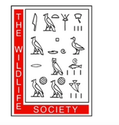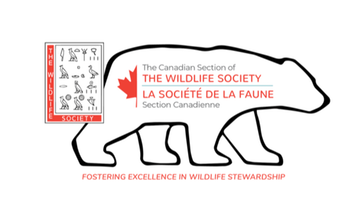Published Articles
Biolink (Official Newsletter of the ASFWB) Fall 2020


THE WILDLIFE SOCIETY’S CERTIFICATION PROGRAM
As working biologists, Atlantic Society of Fish and Wildlife Biologists (ASFWB) members are increasingly aware of public perception. In our modern society, there is a growing expectation that scientists involved in natural resources research and management should be performing according to professional standards. In Canada, foresters and engineers have long recognized this fact of life and have instituted rigorous certification programs to proclaim their practitioners as professionals.
In 1977, to promote and strengthen professional standards amongst wildlife biologists, The Wildlife Society (TWS) initiated the Certified Wildlife Biologist® (CWB®) program. Prospective applicants are judged based on 4 considerations: 1) educational depth; 2) work experience; 3) TWS membership; and 4) commitment to TWS’s Code of Ethics. To ensure the education and professional experience requirements were being met, TWS established the Certification Review Board (CRB). The CRB is an eight-member board with representation from Canada and 7 other TWS sections across the US.
TWS’s certification program has two stages: 1) Associate Wildlife Biologist® (AWB®) and 2) CWB®. The AWB® is designed to ensure that students have the proper educational background upon graduation from a university. There are five biology categories (Wildlife Management, Wildlife Biology, Ecology, Zoology, and Botany) and six non-biology areas (Physical Sciences, Quantitative Sciences, Statistics, Humanities & Social Sciences, Communications, and Policy, Administration, and Law) which are needed to meet certification standards (see TWS website)
An AWB®, then, has ten years to acquire five years of experience as a wildlife biologist. Upon acquiring this experience, a CWB® application can be submitted to TWS (see TWS website).
To maintain a CWB®, every five years, the TWS member must show that they have performed in a professional manner according to guidelines set down by TWS.
The Canadian Section of The Wildlife Society (CSTWS) believes that students/biologists should have the opportunity to become wildlife professionals. In 2018, the CSTWS formed the Certification Committee, to raise the status of TWS certification in Canada.
In populating the Certification Committee, care was taken to ensure representation for all regions of Canada. Of special interest to Atlantic biologists is that there are two members from your region: Stephanie Walsh, who recently completed two years as President of ASFWB and Levi Newediuk who is a member of the TWS Newfoundland Chapter.
Since students are the backbone of any certification program, this recruitment initiative is of paramount importance. As wildlife educators and practitioners, it behooves us to encourage and provide our youth with the opportunity to become designated as professionals. Our hope is to stimulate enough interest to re-establish TWS Student Chapters in regional Colleges and Universities. Any members associated with colleges or universities who are interested in helping in our attempts to reach students, let me know.
Another initiative that CSTWS has undertaken is the creation of a committee closely aligned with the Certification Committee which will review the wildlife curricula at key universities across Canada. There are several academics who feel that our courses have veered away from the practical component they once had. This committee is in the early stages and will soon be involved in identifying key college/university educators interested in sharing in this task. If any of your members would like to be part of this Curriculum Review Committee, let me know.
In closing, I want to reiterate that the CSTWS would like to reconnect with Atlantic biologists. As an organization that represents wildlife biologists from all regions of Canada, CSTWS’s ability to make a difference increases exponentially as our membership base expands nationally. Opening communication channels is a productive way to start making in-roads. Hopefully, this article will rekindle the desire to “kick start” the reconnection process. I invite your comments and thoughts.
Don Barnes, CWB®,
Chair, CSTWS Certification Committee,
CSTWSCertificationCommittee@gmail.com
ACTWS Newsletter March 2020
The Canadian Section of The Wildlife Society Certification Committee
By Don Barnes, Chair, CSTWS Certification Committee CSTWSCertificationCommittee@gmail.com
Of late, ACTWS has experienced a resurgence of interest in TWS’ certification program. In response, I will be hosting a spring certification workshop as part of the Workshop/Lecture series. As a primer to the workshop, I would like to inform members about the CSTWS Certification Committee and its unique role in promoting professional standards in Canada.
In 1977, to promote and strengthen professional standards amongst wildlife biologists, TWS initiated the Wildlife Biologist Certification Program. This program flourished more in the US than in Canada. In 2017, to address the Canadian situation, the CSTWS Board created the Certification Committee with a two-pronged mandate: 1) educate Canadian students and wildlife biologists regarding the benefits of TWS certification and 2) connect and collaborate with other Canadian professional certification programs to the betterment of wildlife populations and their habitats.
To achieve its mandate, the Certification Committee adopted a unique structure. A Chair was appointed to manage the committee’s affairs and a secretary to record meeting minutes. To ensure a national perspective, each of the five provincial TWS chapters were asked to appoint a liaison. Other liaisons were established to address matters relating to education, students, and other Canadian certification groups.
Because these people are of paramount importance in disseminating, discussing, and relaying information back to the Certification Committee, I would like to highlight the following ACTWS members who are part of the Certification Committee:
-
Secretary—Jessica Melsted AWB®
-
ACTWS Liaison—Chuck Priestley P. Biol.
-
Student Liaison—Ashlyn Herron, VP Lethbridge College Student Chapter
-
BC-CAB Liaison—Dr. Everett Hanna CWB®, RPBio
-
ASPB Liaison—Dave Ealey P. Biol.
Over the past four years, the Certification Committee has undertaken several initiatives:
-
Mentorship Program: The intent of this program is to pair students and biologists with CWBs. To initiate the process, interested parties are asked to submit an email expressing interest in participating. Based on the information provided, we will reach out to a CWB. This arrangement is a win-win as the mentees get the benefit of advice from a CWB and the mentors get to know the student/biologist, typically increasing their willingness to provide a reference.
-
Student Aid Program: The Certification Committee appreciates the difficulties students experience in meeting certification standards. To provide the appropriate guidance, we have designed a program to help with course selection over the length of a student’s program. The goal is to enable students to apply for certification upon graduation. Once again, the onus is on students to reach out to the Certification Committee.
-
Curriculum Review Committee (CRC): Canadian professors have long expressed the need for curriculum reform that better prepares students to become wildlife biologists. To address this issue, the CSTWS Board created the CRC to institute curricula changes more in line with Certification requirements.
-
Proposed Committee of Biological Professionals (CBP): The Certification Committee believes that a CBP is a natural extension once connections are firmed up amongst the Canadian-based certification programs. Because CBP represents programs involved with fish & wildlife, their ecosystems, and the environment, it could be a powerful vehicle to promote professional standards in Canada.
The Certification Committee has more work to do in establishing closer links with other Canadian certification and professional biology organizations, including the ASPB. In an earlier ACTWS-CSTWS Certification Workshop, Dave Ealey highlighted ASPB-TWS relations. Even though that workshop involved discussion groups, the subject of inter-organization certification cooperation was not broached. As such, the upcoming Spring 2021 virtual workshop may provide an appropriate forum to discuss how we might further build alliances.
_______________________________________________
Articles in Preparation
Evolution of certification programs designed to create Canadian professional biologists
At the 2019 CSTWS AGM, Erin and Don Barnes were approached by Dr. Lu Carbyn about putting together a manuscript on wildlife certification in Canada. In 2010, he and two co-authors published an article in Canadian Field-Naturalist (CFN) about biological societies in Alberta. Because of his contacts with CFN, it was decided to develop an article to be published in this Canadian-based journal, spearheaded by Don Barnes. This manuscript is currently in the works with Don Barnes, Erin McCance, Dr. Lu Carbyn, Dr. Everett Hanna (Certification Committee Liaison Officer for BC-CAB), Dave Ealey (Certification Liaison Officer for ASPB), Justine Josephson-Laidlaw (President of the Manitoba Chapter and Certification Committee Representative from TWS Manitoba Chapter), Jessica Melsted (Certification Committee Secretary), and Al Arsenault (CRB Canadian Representative on the Certification Committee) as co-authors.
To help us develop the proper historical perspective, Dr. Lu Carbyn has generously contributed documents extending back to the 1970s and 80s. Don Barnes is currently in the progress of transcribing these into a usable computer format for use in the proposed article.
Why are there not more TWS members opting for certification: A Canadian Prospectus
Why are there not more CWBs in Canada? With regard to this second manuscript, we hope to publish it in TWS’s Wildlife Professional.
This manuscript will include the results from several surveys including:
-
CSTWS survey of Canadian biologists/students had several certification queries to gain a better perspective on how professionalism and certification are perceived by Canadians.
-
A Certification survey of Student Chapters by Jessica Melsted
-
A survey of employers in the western provinces by Justine Josephson-Laidlaw
-
Three additional surveys (employers, education institutions, and working biologists) by the Committee of Canadian Concerns, which was part of the historical information provided by Dr. Lu Carbyn.
Additionally, Don Barnes has reached out to CWBs across Canada to engage them and gain additional perspectives. Each was asked to provide the following information:
-
The reasons why they underwent TWS certification when so many other wildlife biologists did not
-
Any thoughts/comments they may have to shed light on why student/young professionals are not motivated to become AWBs or CWBs
-
Any suggestions they may have to increase certification awareness in Canada
-
Would they be interested in adding to our growing list of CWB mentors?
So far, the response has been overwhelming. CWB®s from across Canada have supplied us with a lot of thought-provoking ideas and comments. Over the next while, Don will work towards synthesizing their comments.
